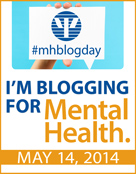 My intention is to live my life as fully awake as possible. Yet, the more I meditate, the more I realize how frequently I am on autopilot. I was comforted to learn that this is a common realization among regular meditators, so I guess I am in good company.
My intention is to live my life as fully awake as possible. Yet, the more I meditate, the more I realize how frequently I am on autopilot. I was comforted to learn that this is a common realization among regular meditators, so I guess I am in good company.
As a child I learned to distract myself from distressing realities, to block them out of my mind. Even though I have spent close to 35 years working on enhancing my self-awareness, I discovered that there is still a part of me that automatically falls back into my old avoidance pattern when I feel vulnerable. It is a common human instinct to avoid unpleasantness so it is understandable that I have this tendency. I try to notice when I start to fall back into this habit and change it as soon as I can. However, I am also learning to respect my vulnerable feelings and accept myself when I am having difficulty overriding my urge to distract myself.
Brene Brown talks about the power of vulnerability and having the courage to tell the story of who we are with a whole heart. In her book, Daring Greatly, she quotes Theodore Roosevelt:
“The credit belongs to the man who is actually in the arena, whose face is marred by dust and sweat and blood; who strives valiantly, who errs, who comes short again and again, because there is no effort without error and shortcoming; but who does actually strive to do the deeds… who at the best knows in the end the triumph of high achievement, and who at the worst, if he fails, at least fails while daring greatly…”
It is a new year, so I have spent some time reflecting on the past year and setting my intentions for this year.
In reflecting on 2014, I thought about the courage it takes to continue to get to know myself, despite my urge to avoid thinking about it, and to take risks to reveal my vulnerabilities to others. I also dare to take risks to reach for higher and higher goals, stretching myself beyond my limiting beliefs about my capabilities. When I fall short of my goals, I try to give myself credit for daring to reach beyond my comfort zone and try to think about it as a learning experience on the path to greater self-efficacy. And mostly I am succeeding at looking at it that way. The most important lesson for me is that it is inevitable that I will make mistakes and that it is not necessary to hide my imperfections, because:
- being genuine is an important value for me
- my authentic self includes all parts of me, even the imperfect parts
- I want to learn to accept all parts of me, even the parts I want to change
- I want to fully embrace the belief that I am good enough as I am even when I fall short of my own expectations
- I want to let go of expectations as much as possible
- I have learned that the more I can accept myself as I am in the present, the more I can change what I need to change in order to keep growing and progressing towards my goals
I see myself as a “diamond-in-the -rough” who needs to work on polishing the rough edges. This past year my focus was on developing more discipline and improved habits. While I am still not always consistent with my new habits, I am much more confident about my ability to keep plugging away at it until I get there. This year I intend to work on becoming more mindful of my tendency to go into automatic pilot mode. I plan to work on accepting and even embracing difficult situations as welcome challenges, rather than distracting myself when I feel vulnerable, so I can be more fully present more of the time. And I intend to work on polishing my rough edges by challenging the limiting beliefs that interfere with my reaching my full potential.
In what ways do you take risks to “dare greatly”? What rough edges do you intend to work on polishing? Please share your comments and reactions to this post below.
You might also enjoy Shifting Gears from Automatic Pilot to Mindful Attention and 7 Steps to Mindful Awareness.

 According to Ron Siegel in The Mindfulness Solution: Everyday Practices for Everyday Problems, “a wealth of scientific evidence” shows that mindfulness can have a profound effect on our lives. Researchers have demonstrated “changes in both inner experience and outward behavior” and have recently been able to show changes in “brain functioning and brain structure” due to advances in brain scanning technology.
According to Ron Siegel in The Mindfulness Solution: Everyday Practices for Everyday Problems, “a wealth of scientific evidence” shows that mindfulness can have a profound effect on our lives. Researchers have demonstrated “changes in both inner experience and outward behavior” and have recently been able to show changes in “brain functioning and brain structure” due to advances in brain scanning technology. The prefrontal cortex is the part of the brain that persuades you to get up to meditate and exercise when you feel like staying in bed, helps you to resist the extra helping of dessert, and motivates you to start working on the project that you feel like putting off until tomorrow. According to Robert Sapolsky, a neurobiologist at Stanford University, the main purpose of the prefrontal cortex is to bias the brain towards choosing to do “the harder thing.”
The prefrontal cortex is the part of the brain that persuades you to get up to meditate and exercise when you feel like staying in bed, helps you to resist the extra helping of dessert, and motivates you to start working on the project that you feel like putting off until tomorrow. According to Robert Sapolsky, a neurobiologist at Stanford University, the main purpose of the prefrontal cortex is to bias the brain towards choosing to do “the harder thing.”